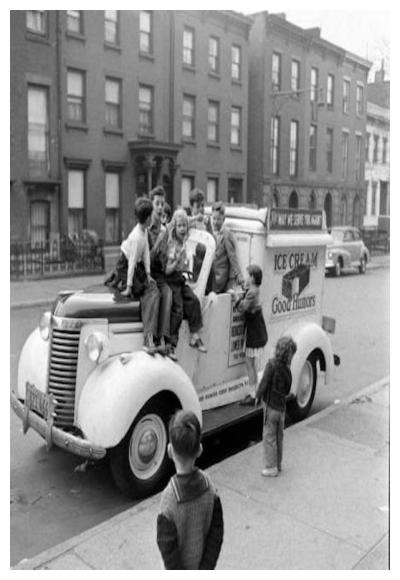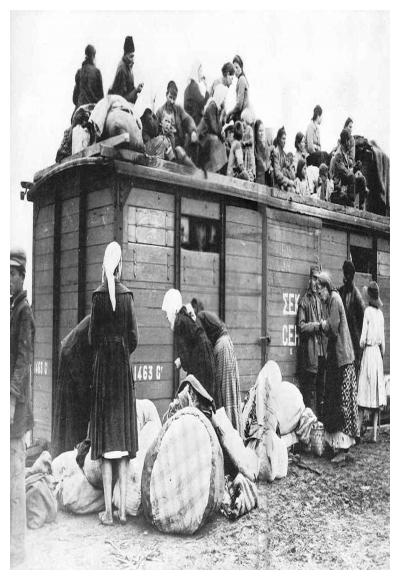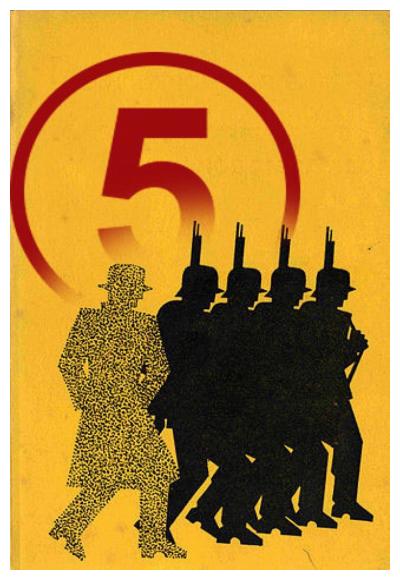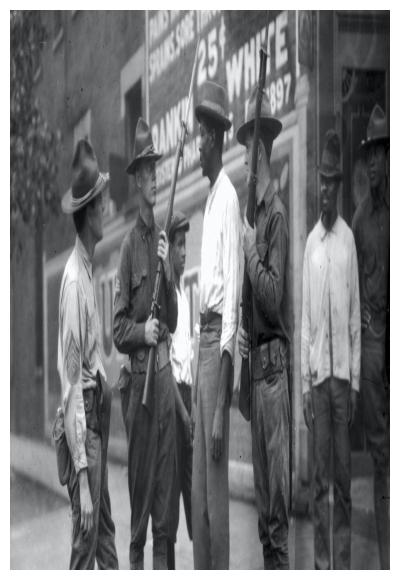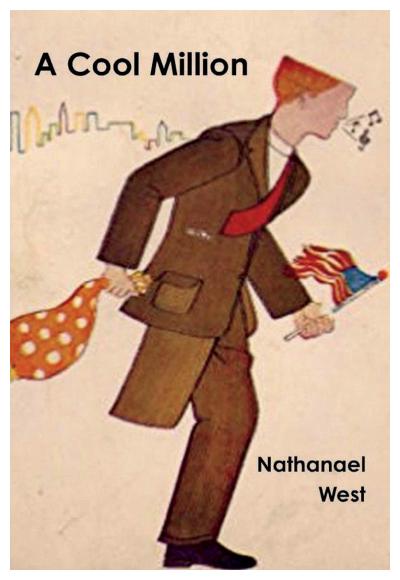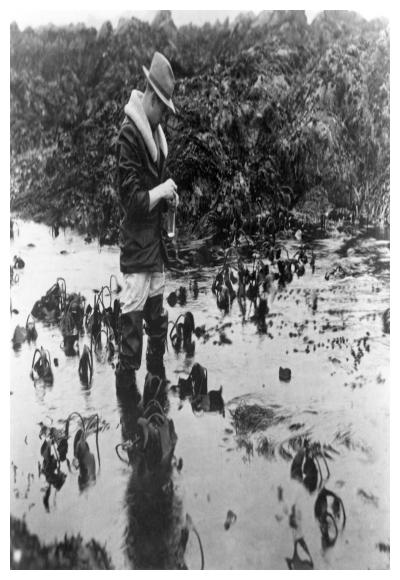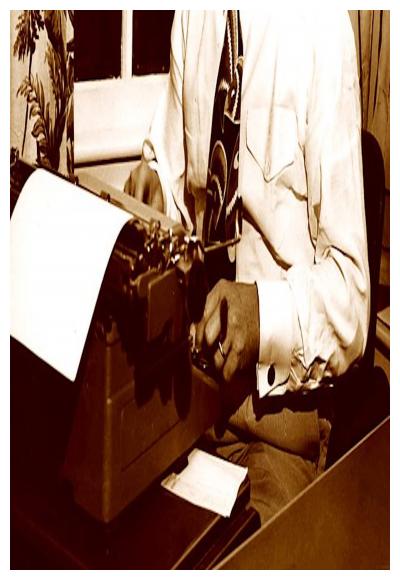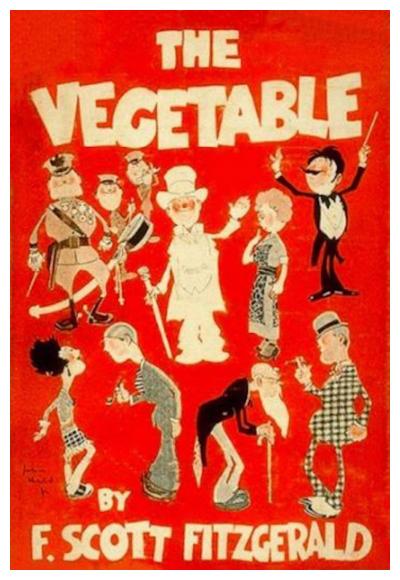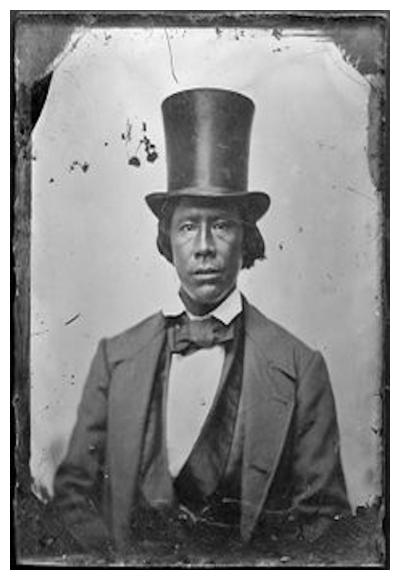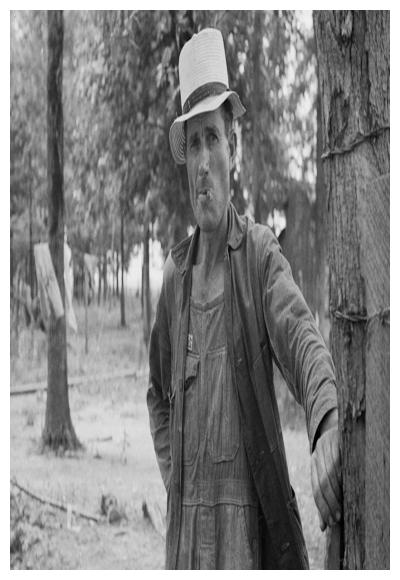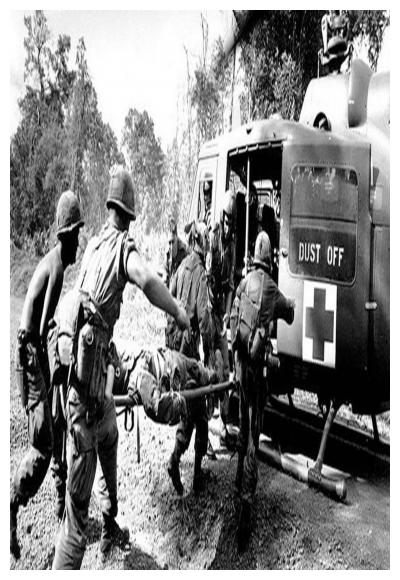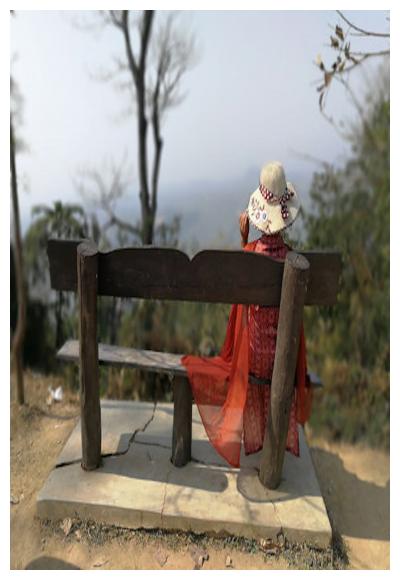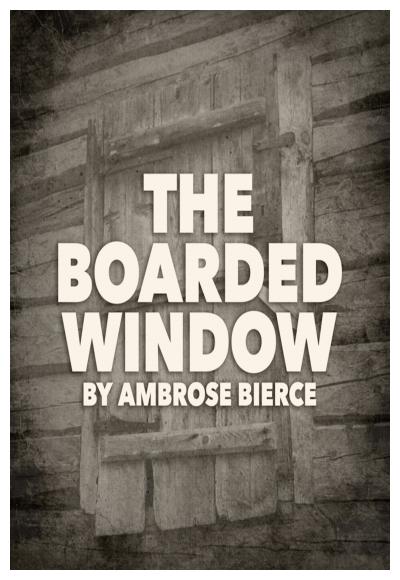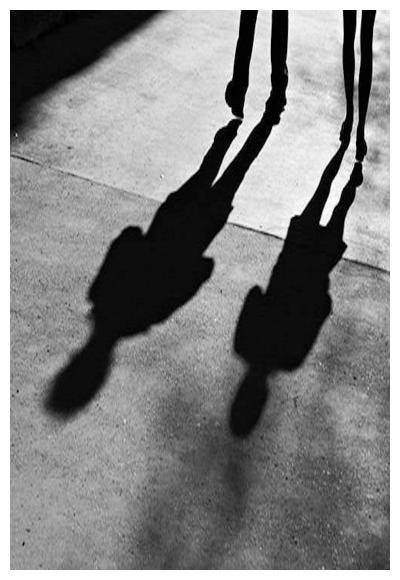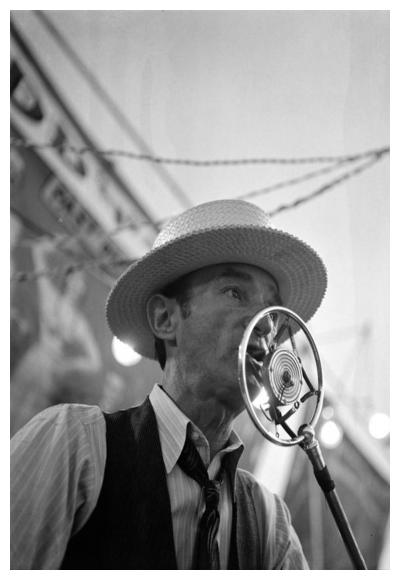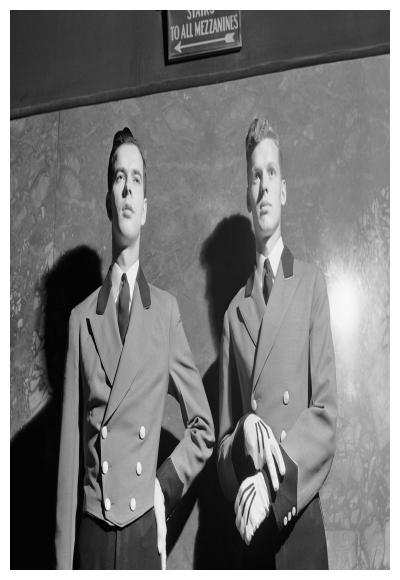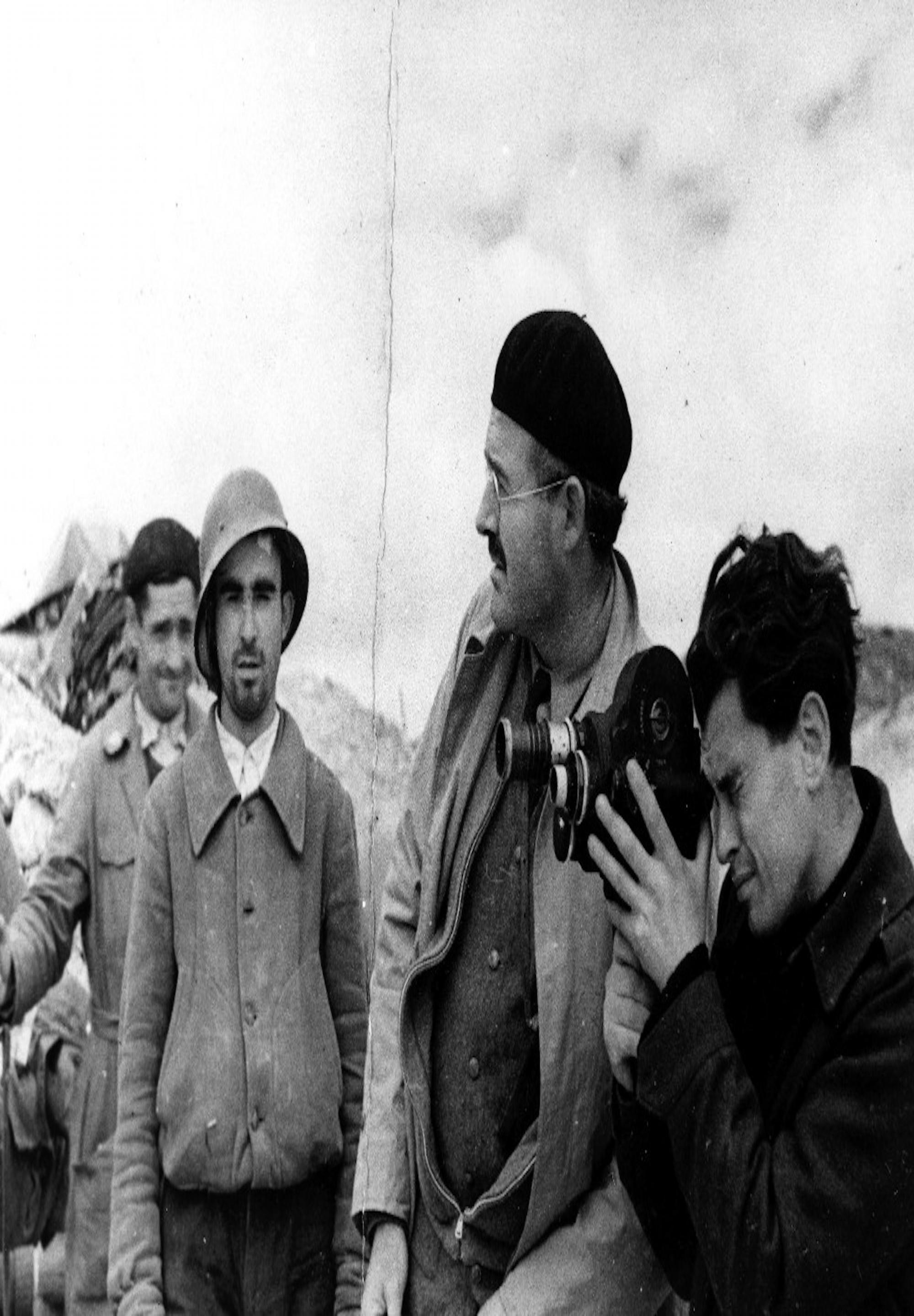
Synopsis/Details
"Hemingway’s War" is an adaptation of six stories told from the point of view of the fictional character Nick Adams, an American journalist working in Spain during the Spanish Civil War (1936-39).
The first episode is about fighting for something bigger than yourself—an idea that the war correspondent Adams seems to support. This idea is portrayed through the characters Enrique and Maria. Enrique is a young veteran who fought for the Spanish Loyalist army. He now hides in an abandoned house in Madrid. The Stranger is keeping watch on the house to rat Enrique out to the police for a profit. Enrique’s lover, Maria, visits the house, bringing food along with her company. The two of them talk about the war and how it may spread outside Spain. Enrique ends by telling Maria of the death of her brother. She becomes upset at this news and criticizes the current conflict. Enrique explains that the goals of the war-effort are more important than the lives being lost—that Loyalists are fighting for a purpose greater, or more significant, than their own selves. In the midst of his and Maria’s discussion, the two of them hear police sirens and attempt to escape the house undetected. Enrique is shot and killed. Maria is soon captured for interrogation yet, despite her desperate situation, she holds her head high, remembering that Enrique recently told her, “Where you die does not matter, if you die for liberty.”
In the second episode, Nick Adams goes to his favorite Madrid bar, Chicote’s. Once there, he meets his friend Giorgos, a Greek commander who has recently been injured in an air attack. Also at the restaurant is Luis Delgado, the Stranger who denounced Enrique in the first episode. Nick, who sympathizes with the Loyalists, met Luis several years ago and knows that he is a fascist. Luis is wearing a Loyalist uniform, so Nick believes that he is a fascist spy trying to infiltrate a Loyalist stronghold. Nick tells an old waiter that Luis is a fascist. He also gives the waiter the telephone number of the government security office, after which the waiter calls the number to denounce Luis Delgado. The security forces arrive and arrest Luis. Nick then phones his friend Pepe in the government security office and calmly asks him to tell Luis Delgado that he, Nick—not the waiter—denounced Luis.
In episode three, Nick Adams walks into the crowded Chicote’s on a rainy afternoon. He sits with some people whom he does not really know, including a homely British girl. There is a man there with a flit gun, who keeps spraying the old waiter with cologne. Three men in Loyalist uniform are so offended by this act that they beat the man with the flit gun. Yet he sprays the old waiter again. Then one of the uniformed men shoots the offender. Nick takes the British girl and gets her to hide her behind the bar. The three uniformed men leave, but others in the restaurant must remain until the police arrive to investigate the shooting. Nick asks the British girl if he should write a piece about the incident, and she says that it would damage the Spanish Republic. The next day, after the police inquiry, Nick learns that the flit-gun man was a married war veteran who was just letting off steam. He now considers writing a story about the confrontation between the “butterfly” and the “tank,” or the gaiety of the flit-gun man and the sobriety of war.
Nick Adams has been working with a Dutch cameraman to record, for documentary purposes, some fighting during the Spanish Civil War. In the fourth episode, he takes a break and goes to Chicote’s to meet his American friend Al Wagner, who commands a tank division. Al complains about how badly prepared his group is to fight the next day. Nick takes Al back to his hotel room for a long-needed bath. Nick’s room is crowded with people who are using it to have a party, as well as to get cleaned up. Al takes a bath and stays to play in a craps game. Nick and his other friends go out to dinner at a restaurant on the Gran Via. Al arrives later. When the group returns to the hotel room, they meet Baldy Jackson, an American fighter pilot, who drunkenly describes his latest act of airborne daring. After the party winds down, the otherwise dry, cynical Nick tries to lend moral and emotional support to Al, who believes that he will not survive the next day’s battle.
In episode five, Nick Adams takes time out from filming a battle near the Ebro River. He rests with his Dutch cameraman and a group of Spanish Loyalist soldiers under a ridge. One of these Spaniards, an Extremaduran, describes his dislike of all foreigners, particularly Russians. He also dislikes Frenchmen, specifically because of an incident involving one of his comrades, Paco. A young and frightened soldier, Paco shoots himself in the hand to avoid going into battle. His hand then has to be amputated. His French superiors execute him to set an example for all the other men who might think of injuring themselves in order to get out of combat. Ironically, the man Nick most admires is a French soldier who sees the senselessness of what is occurring on the battlefield and has the courage to simply walk away—an act for which he himself is executed. The final scene of the fifth episode, observed by Nick and taking place at an aid station, involves a gravely injured man who is placed among the dead while still alive. A Republican artillery officer tells the Spanish doctor in charge that the latter is cruel for not ending the suffering of the wounded man; the doctor takes offense and blinds the officer by throwing iodine in his face.
In the sixth and final episode of Hemingway’s War, Nick Adams and his Dutch cameraman are working from a room in a bombed-out house overlooking a Madrid park. Two others are there: an American female journalist and a member of British Intelligence. One afternoon, despite warnings, the British man sits down in a sunny part of the room and thus makes himself clearly visible to the enemy. This causes an attack on the house—one that the Briton flees before everyone else. Nick and the American female journalist discuss the attack, which is the first that she has ever witnessed. Afterwards, the woman, Nick, and the Dutch cameraman reconcile with the member of British Intelligence, and they all head back to the Madrid hotel where they have been staying. The world-weary Nick hopes eventually to write something, either in fiction or non-fiction, about all the military-related incidents in which he has been either an observer or a participant. His perspective: the futility and ultimate failure of war.
Story & Logistics
Story Type:
Hero's Journey
Story Situation:
Daring enterprise
Story Conclusion:
Ambiguous
Linear Structure:
Linear
Moral Affections:
Good Man, Probity, Respect, Right, Virtue
Cast Size:
Many
Locations:
Several
Special Effects:
Minor cgi
Characters
Lead Role Ages:
Male Adult
Hero Type:
Anti-Hero, Legendary
Villian Type:
Authority Figure
Stock Character Types:
Everyman, Knight-errant
Advanced
Adaption:
Based on Existing Fiction
Subgenre:
Action/Adventure, Docu-drama, Investigative Reporting, War
Subculture:
Bohemianism
Action Elements:
Weaponry
Equality & Diversity:
Intolerance Focused
Life Topics:
Approaching Death, Death
Drug Topics:
Legal Drugs
Super Powers:
Physical or mental domination
Time Period:
Interwar period (1918–1939)
Country:
Spain
Time of Year:
Autumn/Fall, Spring, Summer, Winter
Illness Topics:
Psychological
Relationship Topics:
Affinity
Writer Style:
Dalton Trumbo, James Agee, Robert E. Sherwood

